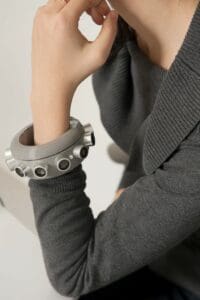 As technology continues to make incredible advances, there are also annoyances that are commonplace these days. One annoyance is constant privacy concerns over whether or not our devices are listening to us. My wife and I are constantly amazed by the ads that come up in our Facebook feed after a conversation about a TV show or a location we would like to visit. And we are clearly not the only ones. I just read an article in the New York Times about Ben Zhao and Heather Zeng, their privacy concerns, and what they did about it. Ben decided to bring home an Alexa-enabled Echo speaker, much to the dismay of his wife Heather. Her concern was that the microphone was always on; so even if they just wanted Alexa to play their favorite songs, it was listening to everything they said. The solution: the bracelet of silence. With the help of an assistant professor, Pedro Lopes, they designed a “bracelet of silence” that will jam the Echo or any other microphones in the vicinity from listening in on the wearer’s conversations. The bracelet has 24 speakers that emit ultrasonic signals when the wearer turns it on. The sound is imperceptible to most ears, with the possible exception of young people and dogs, but nearby microphones will detect the high-frequency sound instead of other noises. For wearers, the result is the sweet sound of silence. And now on to this week’s logistics news.
As technology continues to make incredible advances, there are also annoyances that are commonplace these days. One annoyance is constant privacy concerns over whether or not our devices are listening to us. My wife and I are constantly amazed by the ads that come up in our Facebook feed after a conversation about a TV show or a location we would like to visit. And we are clearly not the only ones. I just read an article in the New York Times about Ben Zhao and Heather Zeng, their privacy concerns, and what they did about it. Ben decided to bring home an Alexa-enabled Echo speaker, much to the dismay of his wife Heather. Her concern was that the microphone was always on; so even if they just wanted Alexa to play their favorite songs, it was listening to everything they said. The solution: the bracelet of silence. With the help of an assistant professor, Pedro Lopes, they designed a “bracelet of silence” that will jam the Echo or any other microphones in the vicinity from listening in on the wearer’s conversations. The bracelet has 24 speakers that emit ultrasonic signals when the wearer turns it on. The sound is imperceptible to most ears, with the possible exception of young people and dogs, but nearby microphones will detect the high-frequency sound instead of other noises. For wearers, the result is the sweet sound of silence. And now on to this week’s logistics news.
- More coronavirus news:
- IKEA in the news:
- Maine moves closer to importation of medicine from Canada
- US raises tariffs on European-built aircraft in ongoing dispute over subsidies
- Jeff Bezos has committed $10 billion to combat climate change
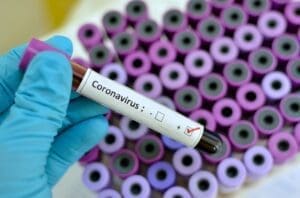 According to the American Chamber of Commerce, most US factories in China’s manufacturing hub around Shanghai will be back at work this week, but the “severe” shortage of workers due to the coronavirus will hit production and global supply chains. According to a recent survey, while 90 percent of the US manufacturers in the Yangtze River delta expect to resume production this week, nearly 80 percent of them said they don’t have sufficient staff to run operations at full speed. According to these companies, the biggest reason for the worker shortage were travel restrictions on their staff returning from holidays and the requirement to quarantine them for two weeks once they do come back.
According to the American Chamber of Commerce, most US factories in China’s manufacturing hub around Shanghai will be back at work this week, but the “severe” shortage of workers due to the coronavirus will hit production and global supply chains. According to a recent survey, while 90 percent of the US manufacturers in the Yangtze River delta expect to resume production this week, nearly 80 percent of them said they don’t have sufficient staff to run operations at full speed. According to these companies, the biggest reason for the worker shortage were travel restrictions on their staff returning from holidays and the requirement to quarantine them for two weeks once they do come back.
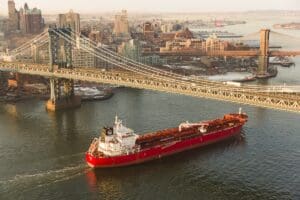 Despite the repercussions from coronavirus, and other turbulence associated with ocean shipping, rates for product tankers are holding firm. Product-tanker spot rates have risen sharply over the past week, continuing a run of strong performance at a time when freight pricing in many other vessel categories has collapsed. According to Lars Dencker Nielsen, chief commercial officer of product-tanker owner Scorpio Tankers, “in the short term, demand responds to the virus faster than supply. It’s unlikely that cuts in refinery runs in Asia will be enough to cover the loss in demand, and this surplus is going to hit the export market. Already today, Asian gasoline, jet fuel and diesel are all trying to find a new home in the West, creating new trade flows.”
Despite the repercussions from coronavirus, and other turbulence associated with ocean shipping, rates for product tankers are holding firm. Product-tanker spot rates have risen sharply over the past week, continuing a run of strong performance at a time when freight pricing in many other vessel categories has collapsed. According to Lars Dencker Nielsen, chief commercial officer of product-tanker owner Scorpio Tankers, “in the short term, demand responds to the virus faster than supply. It’s unlikely that cuts in refinery runs in Asia will be enough to cover the loss in demand, and this surplus is going to hit the export market. Already today, Asian gasoline, jet fuel and diesel are all trying to find a new home in the West, creating new trade flows.”
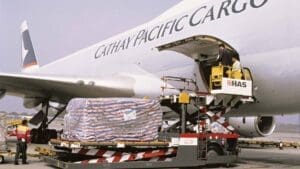 In our final piece of coronavirus news, the virus is impacting air cargo as logistics providers and cargo owners scramble to implement contingency plans for moving goods. Now that so many passenger airlines have removed service to and from China, experts are warning businesses to prepare for a significant spike in freight rates once economic activity in China picks up again. For the first time this century, load factors from Europe and the Middle East to China and Hong Kong are higher than the westbound load factor. Under the circumstances, all-cargo carriers are reducing regularly scheduled flights and throwing planes into charter missions. Charter rates and spot prices on the Frankfurt-to-Shanghai lane have jumped 193 percent because of the influx of inbound charter traffic.
In our final piece of coronavirus news, the virus is impacting air cargo as logistics providers and cargo owners scramble to implement contingency plans for moving goods. Now that so many passenger airlines have removed service to and from China, experts are warning businesses to prepare for a significant spike in freight rates once economic activity in China picks up again. For the first time this century, load factors from Europe and the Middle East to China and Hong Kong are higher than the westbound load factor. Under the circumstances, all-cargo carriers are reducing regularly scheduled flights and throwing planes into charter missions. Charter rates and spot prices on the Frankfurt-to-Shanghai lane have jumped 193 percent because of the influx of inbound charter traffic.
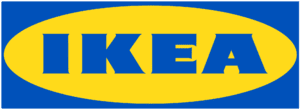 We have written about IKEA’s sustainable supply chain efforts here quite a bit recently. Part of this plan is to reduce the carbon footprint of customers traveling to stores. IKEA has a new store set to open in Vienna, Austria in 2021 that is aimed at pedestrians, cyclists, and people who use public transportation. Purchases too big to be carried will be delivered through a nearby logistics center within 24 hours. This is the latest in IKEA’s urban concepts, and its latest experiment into a world without vehicles. To really build out its sustainability mission, the store includes a rooftop park that will be open to the public to use even when the store is closed.
We have written about IKEA’s sustainable supply chain efforts here quite a bit recently. Part of this plan is to reduce the carbon footprint of customers traveling to stores. IKEA has a new store set to open in Vienna, Austria in 2021 that is aimed at pedestrians, cyclists, and people who use public transportation. Purchases too big to be carried will be delivered through a nearby logistics center within 24 hours. This is the latest in IKEA’s urban concepts, and its latest experiment into a world without vehicles. To really build out its sustainability mission, the store includes a rooftop park that will be open to the public to use even when the store is closed.
As the old saying goes, time is money. And IKEA is now putting their money where their mouth is. Beginning this month, IKEA Dubai is running a campaign that will allow customers to spend their time as a currency, simply by showing IKEA checkout staff their Google Maps timeline, which proves how much time they’ve spent travelling to IKEA stores. Dubbed “Buy With Your Time,” the idea behind the new promotion is that customers usually spend an inordinate amount of time travelling to IKEA outlets, usually because said outlets reside on the outskirts of towns. In view of this, IKEA has added “time currency” prices for every item in its Dubai stores, which are based on the average Dubai salary. As such, customers are now able to buy products using all the time they’ve spent travelling to IKEA over the years.
A committee of the Maine Legislature moved the state closer to wholesale importation of prescription drugs from Canada with a vote on Tuesday. The committee unanimously approved rules from the Maine Department of Health and Human Services. Democratic Senate President Troy Jackson of Allagash said that’s a key step in implementing a new law about drug imports. Maine passed the new law last year, and the state now needs to send the federal government a plan and get approval to set up the program. The health and human services department is required to submit the application to the feds by May 1.
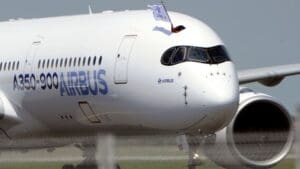 The US government said it would increase tariffs on aircraft imported from the European Union to 15 percent from 10 percent, ratcheting up pressure on Brussels in a nearly 16-year transatlantic dispute over aircraft subsidies. The US Trade Representative’s Office said it remained open to reaching a negotiated settlement with the EU on the issue but could revise its actions if the EU imposed tariffs of its own in connection with a pair of disputes over the subsidies. EU officials have said they want to negotiate with Washington but will not be bullied into submission.
The US government said it would increase tariffs on aircraft imported from the European Union to 15 percent from 10 percent, ratcheting up pressure on Brussels in a nearly 16-year transatlantic dispute over aircraft subsidies. The US Trade Representative’s Office said it remained open to reaching a negotiated settlement with the EU on the issue but could revise its actions if the EU imposed tariffs of its own in connection with a pair of disputes over the subsidies. EU officials have said they want to negotiate with Washington but will not be bullied into submission.
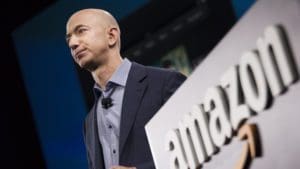 And finally, Amazon founder, CEO, and the world’s richest person, Jeff Bezos, has committed $10 billion to combat climate change. According to Bezos, “climate change is the biggest threat to our planet. I want to work alongside others both to amplify known ways and explore new ways of fighting the devastating impact of climate change on this planet we all share. This global initiative will fund scientists, activists, NGOs — any effort that offers a real possibility to help preserve and protect the natural world.” This marks the second largest charitable gift of the 21st century, behind Warren Buffett’s 2006 promise to give the bulk of his net worth approximately $43 billion) to the Gates Foundation.
And finally, Amazon founder, CEO, and the world’s richest person, Jeff Bezos, has committed $10 billion to combat climate change. According to Bezos, “climate change is the biggest threat to our planet. I want to work alongside others both to amplify known ways and explore new ways of fighting the devastating impact of climate change on this planet we all share. This global initiative will fund scientists, activists, NGOs — any effort that offers a real possibility to help preserve and protect the natural world.” This marks the second largest charitable gift of the 21st century, behind Warren Buffett’s 2006 promise to give the bulk of his net worth approximately $43 billion) to the Gates Foundation.
That’s all for this week. Enjoy the weekend and the song of the week, Simon & Garfunkel’s Sound of Silence.

















